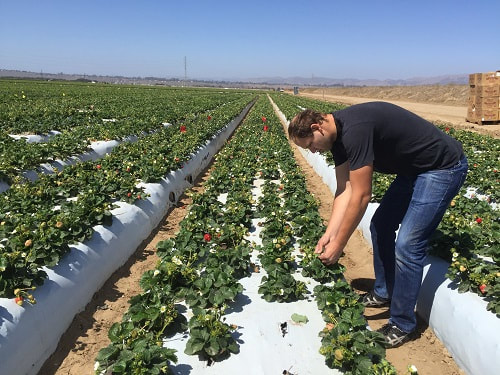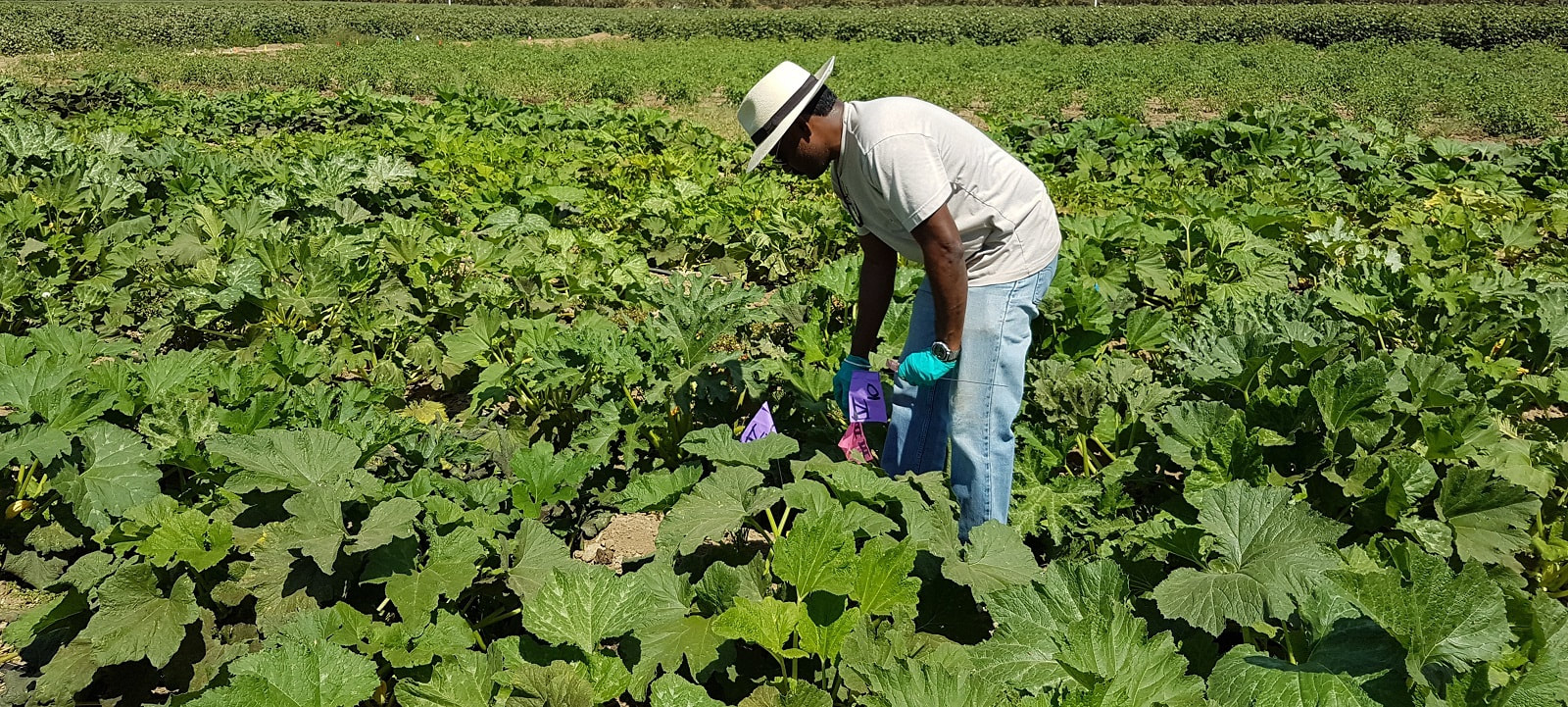Tiny Organisms Serve as Alternative to Chemical Pesticides
 A researcher collects data from a strawberry plot treated with beneficial microbes.
A researcher collects data from a strawberry plot treated with beneficial microbes.
A 2017 study in San Luis Obispo County found that certain fungi can fight harmful organisms that cause plant disease and can also help plants grow, serving as an even better alternative to chemical pesticides.
Dr. Surendra Dara, a UC Cooperative Extension Strawberry and Vegetable Advisor working in partnership with the County, studies how beneficial microbes help crop protection and explores new ways to increase their use for sustainable agriculture.
In one of his 2017 studies, he found that three insect-killing fungi effectively counteracted a potent variety of fungi that causes many detrimental diseases in crops around the world. This discovery shows that instead of using different products for controlling pests and diseases, growers can now use one of these friendly fungi, which also appeared to help plants grow.
Many people are concerned about chemical pesticides. As consumer preference for chemical-free fruits and vegetables increases, researchers continue to study the safe use of chemicals and find non-chemical alternatives for controlling pests and diseases.
The County of San Luis Obispo worked in 2017 to reduce the use of chemicals as pesticides and develop sustainable pest management solutions for the local agriculture industry. Using microscopic organisms, or microbes, such as bacteria, fungi or viruses is one solution the County has been exploring. These are known as biopesticides and are safer alternatives to chemical pesticides.
Other studies conducted by Dr. Dara also generated valuable information on the effectiveness of various beneficial bacteria and fungi, plant extracts, and other materials on improving crop growth, health and yields or controlling pests and diseases in strawberry, tomato and zucchini. These efforts provide safer pest management options, promote sustainable agriculture for better environmental and human health, ensure the economic viability of Central Coast agriculture safe local foods in San Luis Obispo County.
Dr. Surendra Dara, a UC Cooperative Extension Strawberry and Vegetable Advisor working in partnership with the County, studies how beneficial microbes help crop protection and explores new ways to increase their use for sustainable agriculture.
In one of his 2017 studies, he found that three insect-killing fungi effectively counteracted a potent variety of fungi that causes many detrimental diseases in crops around the world. This discovery shows that instead of using different products for controlling pests and diseases, growers can now use one of these friendly fungi, which also appeared to help plants grow.
Many people are concerned about chemical pesticides. As consumer preference for chemical-free fruits and vegetables increases, researchers continue to study the safe use of chemicals and find non-chemical alternatives for controlling pests and diseases.
The County of San Luis Obispo worked in 2017 to reduce the use of chemicals as pesticides and develop sustainable pest management solutions for the local agriculture industry. Using microscopic organisms, or microbes, such as bacteria, fungi or viruses is one solution the County has been exploring. These are known as biopesticides and are safer alternatives to chemical pesticides.
Other studies conducted by Dr. Dara also generated valuable information on the effectiveness of various beneficial bacteria and fungi, plant extracts, and other materials on improving crop growth, health and yields or controlling pests and diseases in strawberry, tomato and zucchini. These efforts provide safer pest management options, promote sustainable agriculture for better environmental and human health, ensure the economic viability of Central Coast agriculture safe local foods in San Luis Obispo County.

